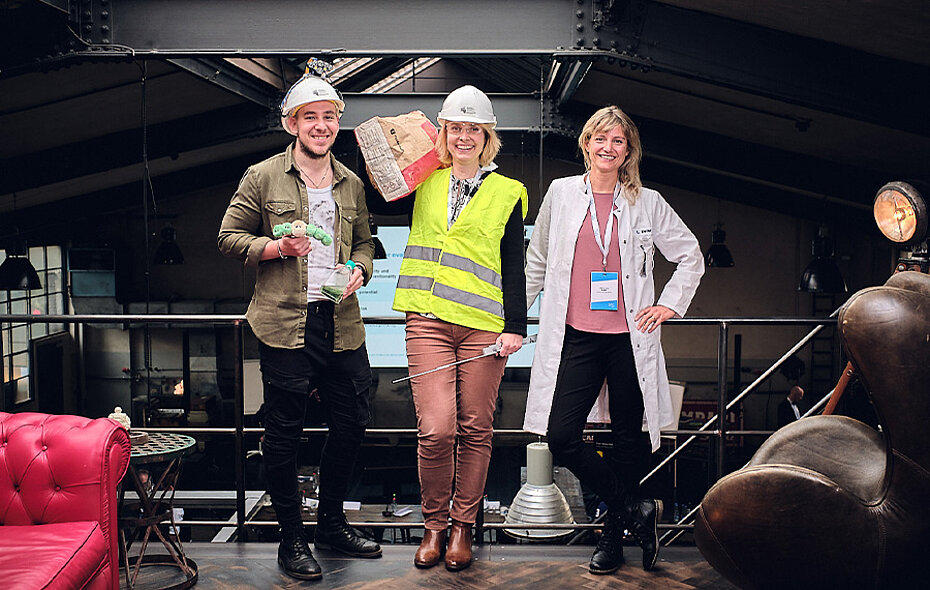
Cyanobacteria as Master Builders
Research is being conducted into the potential of the calcifying properties of algae for various industrial applications, for example for the development of reproducing concrete or the development of calcium-containing minerals as alternative coatings for solar cells.
Goals
In view of climate change and the industrial revolution towards greater sustainability, the biotechnological use of algae offers a promising alternative to bacteria. Cyanobacteria - a special group of algae - are characterised by their photosynthetic and CO2-binding properties.
In the research project "Cyanobacteria as master builders", previously unknown species of algae are used, which form solid, crystalline shell structures of calcium carbonate (CaCO3) in their natural habitat. Biological cementation is reinforced by bonding with the algae's mucilage, which in combination offers great potential for the production of new materials using biotechnological processes.
The interdisciplinary team of phycologists (algae researchers), civil engineers (Kaiserslautern University of Applied Sciences and Arts), natural product analysts (DLR; Weincampus Neustadt) and soil scientists (Institute of Soil Science, Leibniz Universität Hannover) has therefore set itself the goal of utilising the lime-embedding properties of these algae to produce hybrid materials such as living concrete.
Project manager
Details
Carl Zeiss Stiftung
Duration01.02.2024 - 31.01.2026
